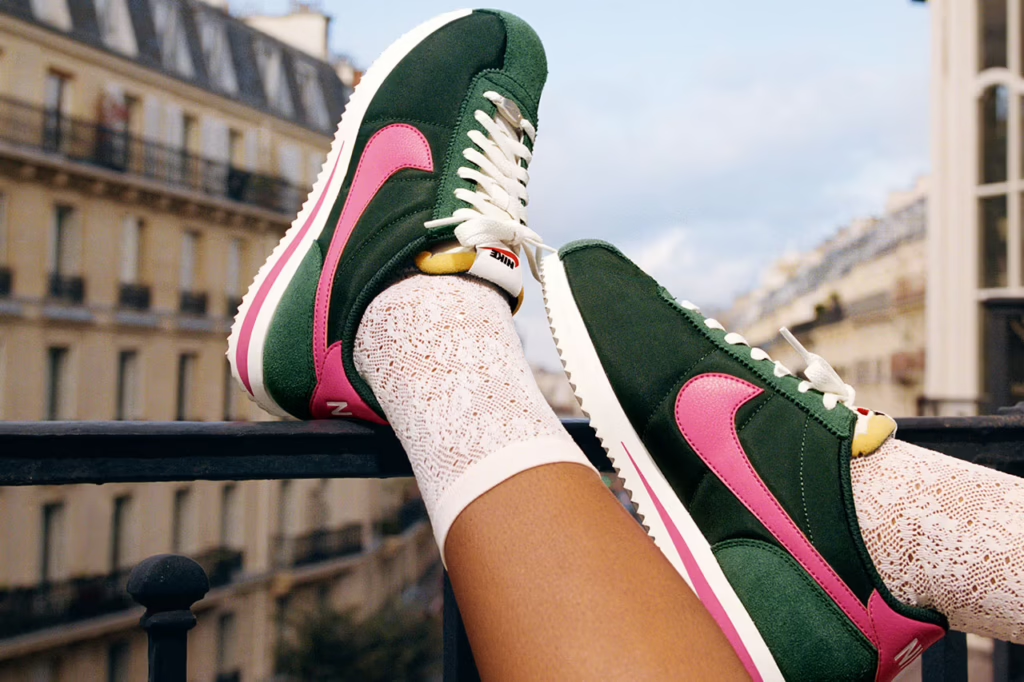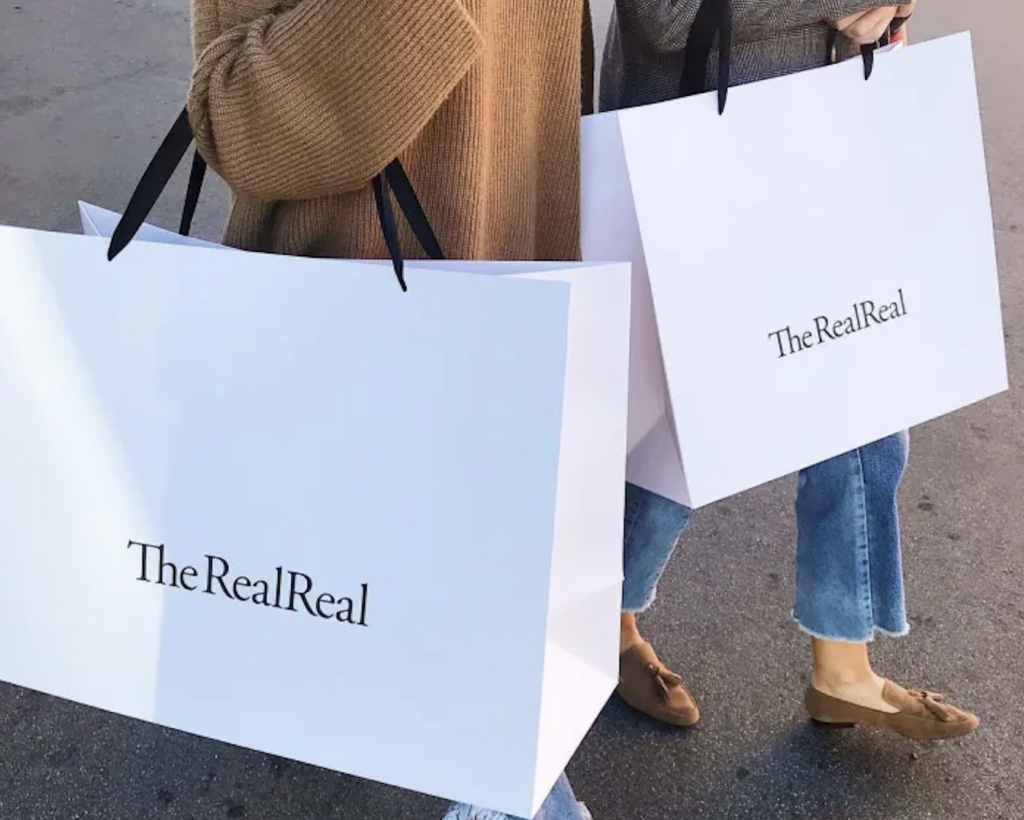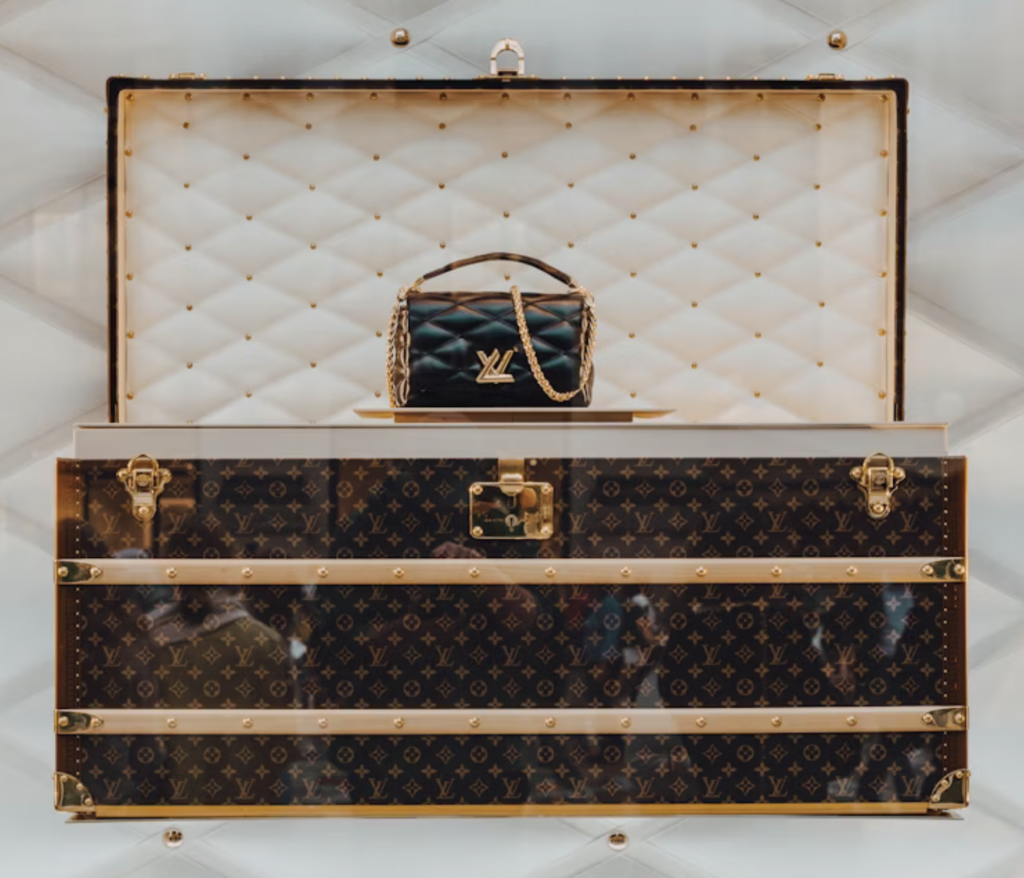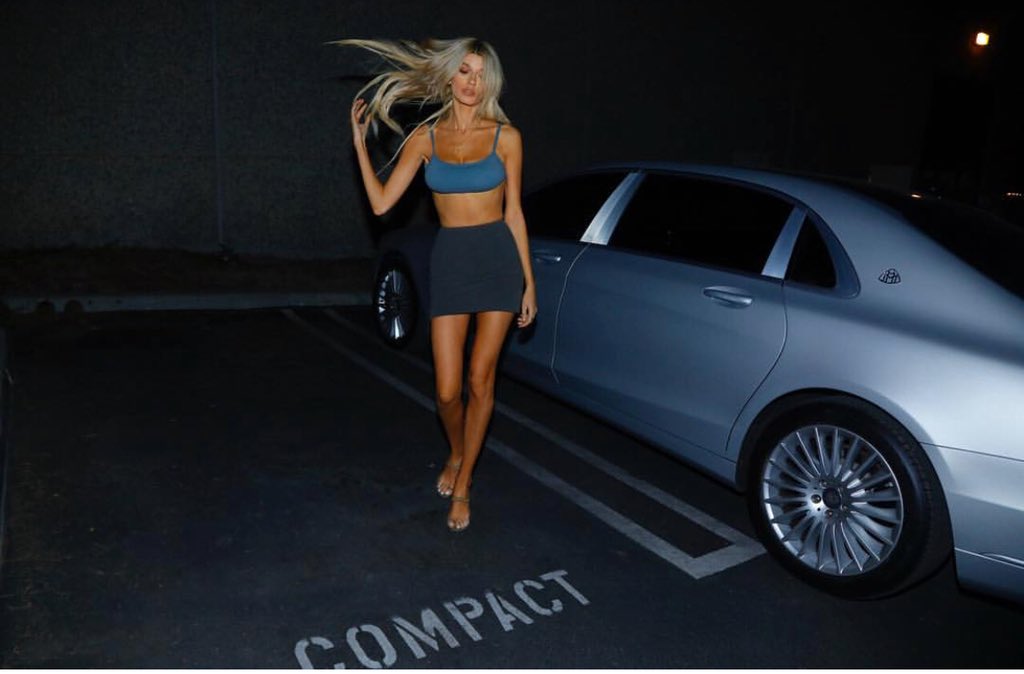
image: Yeezy
Kanye West took Instagram by storm on Tuesday when a string of photos hashtagged #YeezySeason6 began to appear. The images, themselves, which were posted by Instagram models, influencers, and friends of the Kimye camp, bear a striking resemblance to the paparazzi-style photographs starring Kim Kardashian that West released late last year to promote his Yeezy Season 6 collection. Was Tuesday’s Instagram flood a coincidence? Of course not. Kanye West, the marketing genius, was at it again.
As Elle’s Nikki Ogunnaike wrote on Tuesday, “Just days before New York fashion week, Mr. West has enlisted friends of the brand to reenact these iconic Kim moments. Instagram models, influencers, and friends of the brand rolled out photos in the same looks and locations as Kim’s pictures on Instagram this evening. Kristen Noel Crawley, Jordyn Woods, Amina Blue and many others have gotten in on the action.”
The social media marketing campaign, which also stars Kim K’s old pal Paris Hilton, is undeniably inventive and intriguing. It’s different. It’s modern. It’s buzz-worthy. It’s everything that most fashion brands are not at the moment.
But here is something you will not read in others’ coverage of this noteworthy fashion moment: It just might be illegal.
Yes, it seems that neither Mr. West – nor anyone in his camp – learned anything from the April 2015 Instagram campaign that Lord & Taylor pioneered.
If you think back to April 2015, there is a chance your Instagram feed was flooded with posts featuring a certain paisley-print dress from Lord & Taylor. Everyone from influencers like Arielle Charnas of Something Navy to Nylon Magazine were promoting the same salmon-colored dress from the retailer’s new Design Lab collection. Much like the latest #YeezySeason6 stunts, the slew of Lord & Taylor #DesignLab posts were not a coincidence.
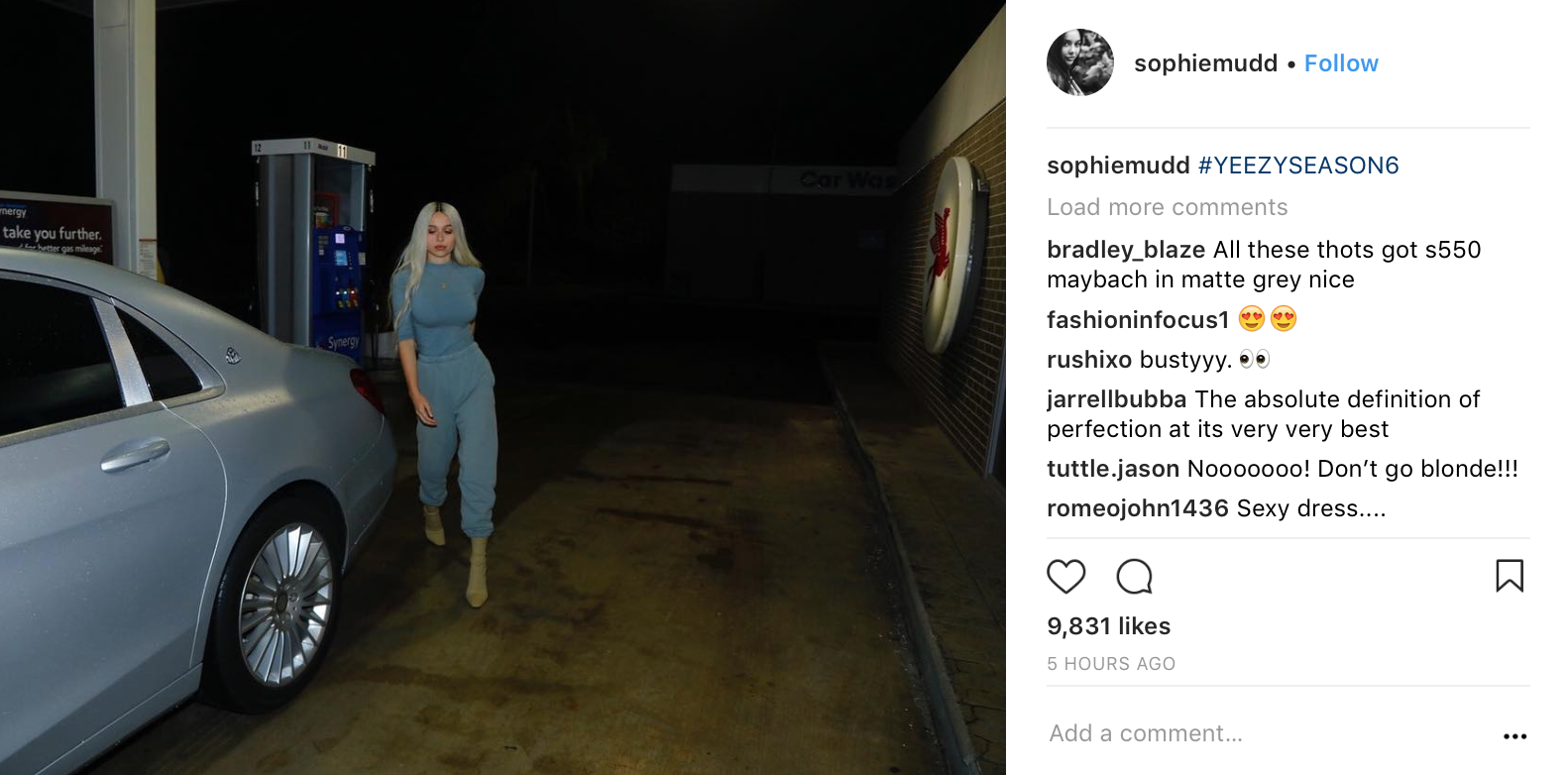
image: @sophiemudd
It turns out that Lord & Taylor had enlisted help. The retailer gave the dress to “50 select fashion influencers” and paid them $1,000 to $4,000 to post a photo on Instagram of themselves wearing the dress and attributing it to its new Design Lab but without disclosing that payment had changed hands or that they received the dress for free.
The details of the Lord & Taylor advertising scheme came out in waves, started when the Federal Trade Commission (“FTC”), an independent government agency tasked with promoting consumer protection, and eliminating and preventing anticompetitive business practices, initiated an investigation in 2015. Thereafter, the FTC filed a formal case in which it alleged that Lord & Taylor had facilitated to the presentation of native advertising as objective content, and ultimately, in March 2016, the parties reached a settlement.
In accordance with the parties’ settlement agreement, Lord & Taylor is barred from presenting content that it pays for as coming from an independent source, such as a magazine or influencer.
An Undisclosed Ad Campaign
This is where the orchestrated Yeezy posts come in. The campaigns – both the original with Kim Kardashian and the latest group of posts starring the Insta models – could prove to be wildly problematic, largely because there is a very good chance most consumers have no idea that any of the imagery is actually part of a formal ad campaign (and that the models are likely being compensated in some way – even if it is just free clothes – to post these images on their accounts). That was the point of the Yeezy photos, after all.
(Note: The FTC has stated that only “a significant minority” of consumers need to be confused – or “misled” – as to the nature of an ad campaign for that campaign to be deemed “deceptive” in accordance with the FTC Act, a federal law in the U.S.).
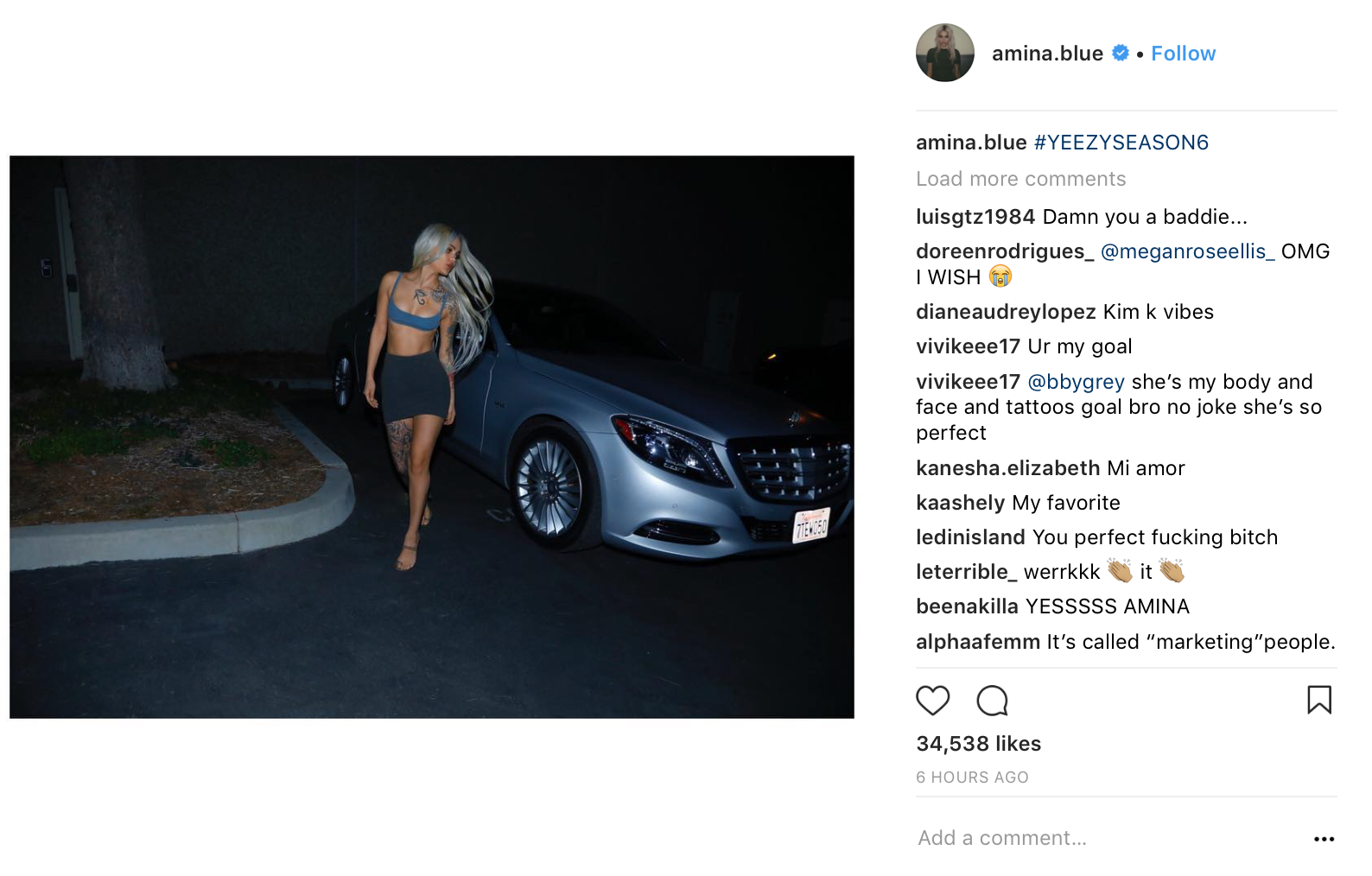
image: @amina.blue
Regardless of whether most Instagram users can identify the commercial nature of the Yeezy posts or not, what is clear in the case at hand is that there is a “material connection” at play between the Yeezy brand and the many individuals enlisted to appear in the campaign. And that connection is one that consumers would almost certainly not view as an ad campaign.
Why? Well, because it does not look like a traditional campaign. Due to the casual-feeling, logo-less nature of the photos dispersed among Kim Kardashian’s and the individual influencer/model’s Instagram accounts, the imagery comes in stark contrast to the look and feel (and method of distribution) of most other fashion ad campaigns.
Also, the imagery does not include legally-mandated language, such as #ad, that would alert consumers to the fact that Kim K and these influencers are not merely wearing #YeezySeason6 by chance.
Despite the FTC’s clear rules for influencers and brands, alike, which require that material connections – whether it be a check, free clothes, or other perks be clearly disclosed – many are still failing to obey by federal truth in advertising laws, and if there is, in fact, such a material connection in play between Kanye West and his bevy of Kim K lookalikes, they could very well be on the wrong side of the law here.











